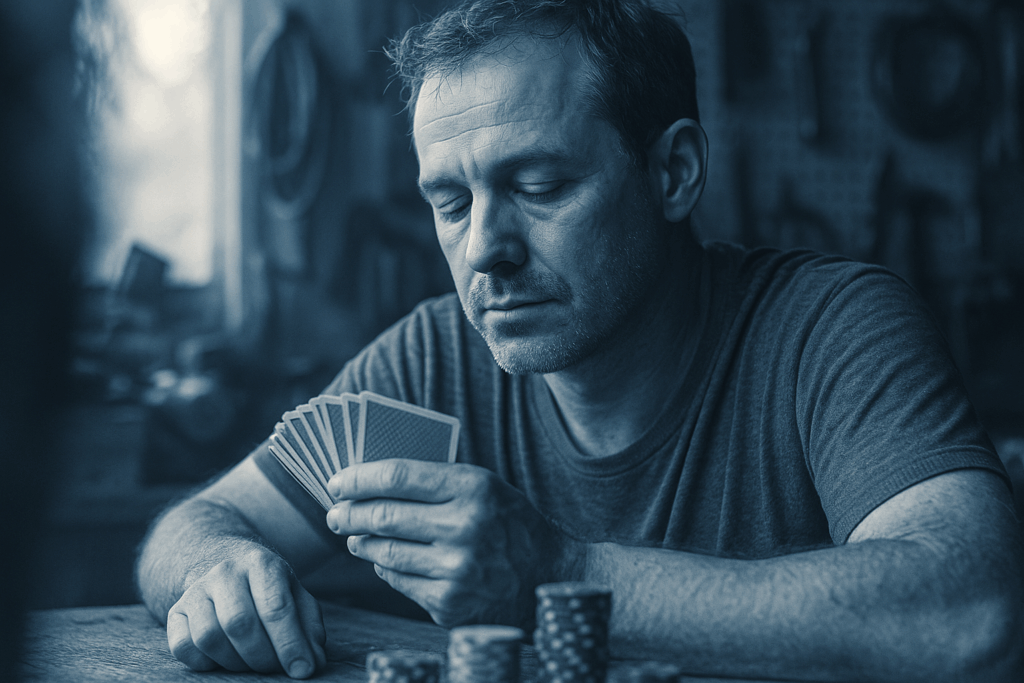Why Wellness Matters for Gamblers
Gambling puts your mind under a microscope. Whether you’re grinding out hours at a table or locked into a screen during an online session, every decision counts—and there’s no margin for mental fog. Decision fatigue sets in faster than most gamblers expect. Add high-stakes pressure, the need for flawless focus, and the unpredictable swings of outcomes, and you’ve got a recipe for burnout if you’re not prepared.
Ignore your body and mind long enough, and it shows—poor reads, chasing losses, impatience, or tilting into bad decisions. What starts as a slight dip in performance can spiral into long-term damage: frayed nerves, broken bankrolls, and cracked confidence. The pros know this. Wellness isn’t about luxury—it’s about staying sharp, grounded, and in control.
Having a wellness routine is like training for a fight. It sets a baseline for how you show up—not just once, but consistently. The best gamblers treat routine like discipline, not fluff. It’s the structure that supports performance when the pressure peaks and instincts waver. You don’t rise to the level of your goals—you fall to the level of your preparation.
Physical Activity That Supports Focus
You don’t need to be a marathon runner to feel the benefits of movement. For gamblers—especially those grinding out long hours at the screen or table—sedentary time stacks up fast. The brain fog, back pain, restlessness? It’s not just part of the game. It’s a fixable problem.
Start with simple moves. Ten minutes of stretching. A short walk between sessions. A few rounds of bodyweight exercises like squats or pushups. These aren’t about aesthetics—they’re about keeping the mind sharp and controlled. Strong blood flow boosts concentration, while small physical wins help regulate emotions during high-stakes decisions.
Add in lightweight cardio or strength training a few times a week. It doesn’t need to be fancy. A jump rope, a yoga mat, maybe a couple of resistance bands. What matters is consistency. Physical wellness builds real stamina, not just to sit longer, but to stay mentally locked in while others zone out.
Focus fades when your body is idle too long. Plug movement into your routine and you’ll feel the edge sharpen.
Building Your Routine Step by Step
Don’t try to overhaul everything at once. Start with one pillar—maybe sleep, maybe movement—something low-friction that you can stick with. Build momentum there. Once the habit feels automatic, layer on the next. This isn’t about overnight change. It’s about creating a baseline you can rely on.
Track what actually helps. Did that 20-minute walk sharpen your focus in a long session? Did consistent hydration cut down on tilt or fatigue? Write it down. You’re not aiming for perfection—you’re gathering data on yourself.
And stay fluid. A routine that works for online poker at home won’t always hold up in a noisy casino or during a high-stakes tournament. Travel, time zones, game types—they all shift your baseline. So adjust. The goal isn’t a rigid plan but a toolkit you can adapt to stay sharp, wherever and however you play.
Red Flags: When You’re Out of Balance
You don’t need a total breakdown to know something’s off. In gambling, the early warning signs show up in subtle ways—shorter patience, sharper tilt, or chasing losses that should’ve been left alone. When wellness slips, performance usually follows.
Burnout tends to creep in. You feel heavy at the table, decisions lag, and sessions that used to excite just drain you. Reckless play is another signal—taking wild bets, ignoring your usual discipline, or thinking you’re due for a win just because it’s been a while. Frustration? That’s the smoke from the fire. When every loss feels personal, or you can’t walk away from a losing streak, your focus—and your wellness—has already taken a hit.
Course-correct early. That might mean a day off, a timeout from high-stakes tables, or getting back to basics—better sleep, clean meals, movement, and quiet time. Pay attention to how you’re showing up, not just how you’re playing. A sharp mind starts with a stable body.
Stepping back isn’t weakness—it’s strategy. Play long, not desperate.
Gamblers Who Nail the Wellness Game
You won’t find viral montages of it, but some of the sharpest minds in the gambling world swear by morning routines, meditation apps, and portioned snacks. Professionals who treat gambling like a career—poker pros, sports bettors, even high-volume esports players—build in non-negotiable wellness habits to stay sharp.
Take Elena Torres, a high-stakes tournament poker player. She starts her day with a 30-minute walk, avoids caffeine after 2 p.m., and ends every session—win or lose—with ten minutes of journaling. It’s not glamorous, but it keeps her steady across marathon weekends when everyone else burns out.
Or look at Mark “Slate” Jennings, an online sports bettor who runs high-volume models all day. His edge isn’t just in math—it’s in recovery. He lifts weights three times a week, eats like a nutritionist set his meals, and keeps his screen time in check with strict timers.
Different formats call for tweaks. Live poker demands endurance; players often favor light, carb-smart meals and breathing drills during breaks. Online play rewards those who build in micro-stretches and mental resets. Slot grinders focus more on emotional regulation—soundtrack curation and environment tweaks to avoid zone-out or tilt.
Bottom line: The best gear up like athletes. The game isn’t just mental; it’s physical, emotional, and built on rhythm. These players don’t wait for burnout. They train to avoid it.
Final Takeaway: Be the House, Body First
Smart gambling isn’t just about knowing the game. It’s about being sharp enough, steady enough, and strong enough to keep making good decisions when the stakes rise. That kind of performance doesn’t come from a hot streak—it comes from readiness.
Your actual edge? Clarity. Discipline. Consistency. The stuff no one claps for, but that makes the difference when the pressure kicks in. The ability to walk away, to wait, to strike when it’s optimal—not just available. That’s what separates long-term winners from short-term noise.
Luck will always swing. You can’t control it. What you can control is how prepared you are when it hits. Build the routine now—before you’re tilted, fried, or chasing your own bad patterns. You don’t need to be perfect. You just need to be ready.


 Cairis Ollvain, co-founder of GambleFitnessSplash brings a visionary approach to the platform by combining fitness, responsible gambling, and technology into one space. Cairis focuses on creating forward-thinking content that empowers readers to achieve balance, health, and smarter choices.
Cairis Ollvain, co-founder of GambleFitnessSplash brings a visionary approach to the platform by combining fitness, responsible gambling, and technology into one space. Cairis focuses on creating forward-thinking content that empowers readers to achieve balance, health, and smarter choices.

